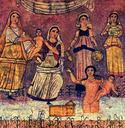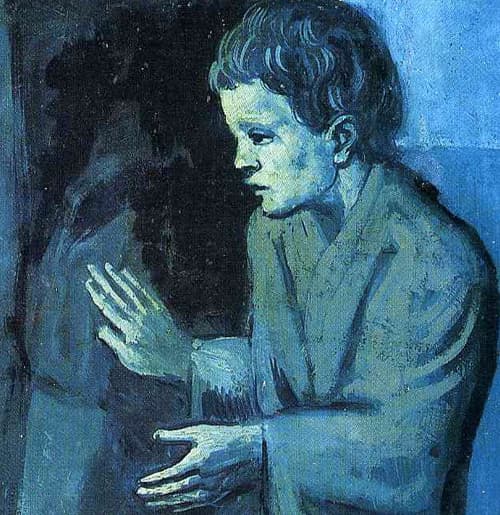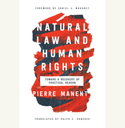Kate Figes,
Couples: The Truth
(Virago Press, 2010, 406 pages).
English author Kate Figes's book, Couples: The Truth, is, to borrow a British term, rubbish. Purportedly an academic work investigating the state of modern relationships through personal interviews and research, Figes writes in a rambling, repetitive stream of consciousness, peppered with often vulgar slang (even aside from direct quotes of her interviewees), convoluted run-on sentences and terrible grammar. The connection between successive statements and paragraphs is frequently baffling. She states opinions as facts and makes sweeping assumptions about the very people and institutions she has failed to represent among her interviewees - married couples happily living "traditional gender roles" and taking their vows seriously. To attempt a thorough critique of all the logical fallacies, bad writing, non-sequiturs, and contradictions would require a book even longer. A brief look at one of her main muddles must suffice.
The denial of the objective structure of reality, beginning with human love, is Figes' great error and the key weakness of her book. Within the following apparently unconnected sentences, Figes states her foundational belief. "What is missing from the modern cultural emphasis on rampant individualism is the deep need for shared lives, for strong links to each other in order to be happy. A good intimate relationship brings about self-discovery rather than self-sacrifice. Unless we look after those closest to us we are destined to be unlooked-after and alone" (p. 4, emphasis added). Figes regards love as a quest for personal fulfillment not requiring the gift of self. There is nothing cruciform in her notion of love. This subjective view of love informs her positions on marriage, family structure, fidelity, and gender relations. For Figes, these can (and should) change according to shifting cultural trends and individual whims. This error forces her into innumerable contradictions.
Figes regards no-fault divorce as a "essential human right in a civilized world" (p. 229), one of our "most precious" rights (p. 262). Now that people live so much longer, she reasons, marriage until death is simply not practical. But this is irrational; increased difficulty through changing circumstances does not nullify an objective truth, if indeed it is true. Figes, however, dismisses the claim that marriage cannot be dissolved before death as an "age-old religious assumption" (p. 262).
Nonetheless she is torn. Forced to admit that divorce produces misery and shame, she must also claim that it can be "liberating and life-enhancing." Forced to admit that divorce wounds children deeply, she also insists that they can be better off for it and that its negative effects on them can be minimized. Their parents must simply be mature enough to have a nice divorce. "[A]ll of the evidence suggests that the more resilient parents are, accepting the end of their partnership quickly and with good grace, focusing together on their shared roles as parents rather than hurling resentment, blame and rage at each other, the more resilient and undamaged their beloved children will be. When parents adapt and move on, so too do their children...." (p. 237). Yet she acknowledges statistics that divorce is the second most stressful life event (after the death of a spouse), increasing the risk of death, disease, smoking, alcohol abuse, and depression (p. 230). And she cites research by a psychologist that has found up to 25% of couples still bitterly fighting six years after their divorce (p. 248).
She also recognizes that the most important foundation for a child's well-being is the relationship between his parents (p. 283). If the "nice" divorce rarely happens and if spouses themselves are so devastated by it, how are they supposed to give their children "exactly the same stable base" and "a great deal more care, love, and emotional support" than when they were together (p. 246)? Incredibly, the personal testimony of grown children of divorce who described themselves as "permanently scarred" by the experience is discounted. In her study, the aforementioned psychologist did not find them to be "objectively" scarred since they appeared to function comparably to their peers from non-divorced homes (p. 239).
Herself a child of divorce at the age of five, Figes spent the first ten years of her marriage asking her husband, "you won't leave me, will you?" While she admits that children of divorce have difficulty trusting in love, she blames this on the inflated romanticism of modern notions of love rather than on divorce itself. She ends the chapter on divorce with the baffling observation that parents can provide their children with "brighter rays of hope when it comes to forming their own relationships... and the knowledge that love is about so much more than romance" (p. 271). Chalk "until death do us part" up to an overly-romanticized aspect of married love. For Figes, whatever else love is about, it is not permanence. "Love for a child has to be unconditional; love between two consenting adults has to be symmetrical and is always conditional on our behavior" (p. 375). How can children trust that their parents' love for them will not fail if their love for each other - the love which brought the child into the world, constituting its identity and home - is conditional?
Children would benefit infinitely more from seeing their parents persevere through better or worse, as they promised they would. That is a lesson in the virtues of loyalty, integrity, and faithfulness. But Figes has little regard for these virtues, calling "for better or worse" a platitude (p. 13), and going so far as to state, "There is nothing inherently virtuous any more in people sticking together because of the principle of ‘Til [sic] death do us part' when they would be happier alone or with someone else" (p. 19). Passing over the illogic of implying that living according to this principle used to be inherently virtuous, Figes would teach children that if they think they will be happier breaking a promise, they have a right to do it. Again, love is about "self-discovery" not self-sacrifice. "Your partner should never be more important to you than your relationship with yourself" (p. 364).
Figes also appears confused about whether or not children need both parents (a mother and a father). Her assertion that the quality of a child's relationship with his parents influences his happiness more than the number of parents present (p. 239) contradicts her admission that for each child, losing daily contact with a parent is a "life-changing tragedy" (p. 249). She claims that there is "overwhelming evidence" that the way a family functions matters more than its structure for a child's well-being (p. 230). Apparently she has not considered the fact that function follows structure (action follows being). A car with a flat tire will not perform like a car with four good tires, even after you put on the spare.
In the end, the great web of insanity caused by the refusal to acknowledge objective truth is perhaps best evidenced by the author's attempt to normalize the bizarre behaviors of many of the couples she interviewed. One couple, "Robin and Hilary," after years of marriage, mutually decided that Hilary could pursue regular "no strings attached" sexual relationships, starting with a young lodger in their home. Figes lauds "Hilary" as "enviably happy and sensual." Another couple, "Lawrence and Jane," practice polyamory. They have an open sexual relationship, currently swapping partners every other night with another couple (pp. 220-21). Figes opines that sexual fidelity has acquired a "sanctimonious moral importance" (pp. 36, 201) and concludes that although most couples still value monogamy, "it is by no means the only way" (p. 219).
If monogamy and indissolubility are not intrinsic to marriage, what is? For the author, nothing. Marriage must be redefined to include any type of "committed" relationship (however the participants define that commitment). But if "marriage" can be anything, then in the end, it is no-thing. And that, apparently, is okay with Kate Figes.
Jennifer Widhalm, a graduate of the John Paul II Institute for Studies in Marriage and Family, is a wife and mother in Kansas City, MO.



